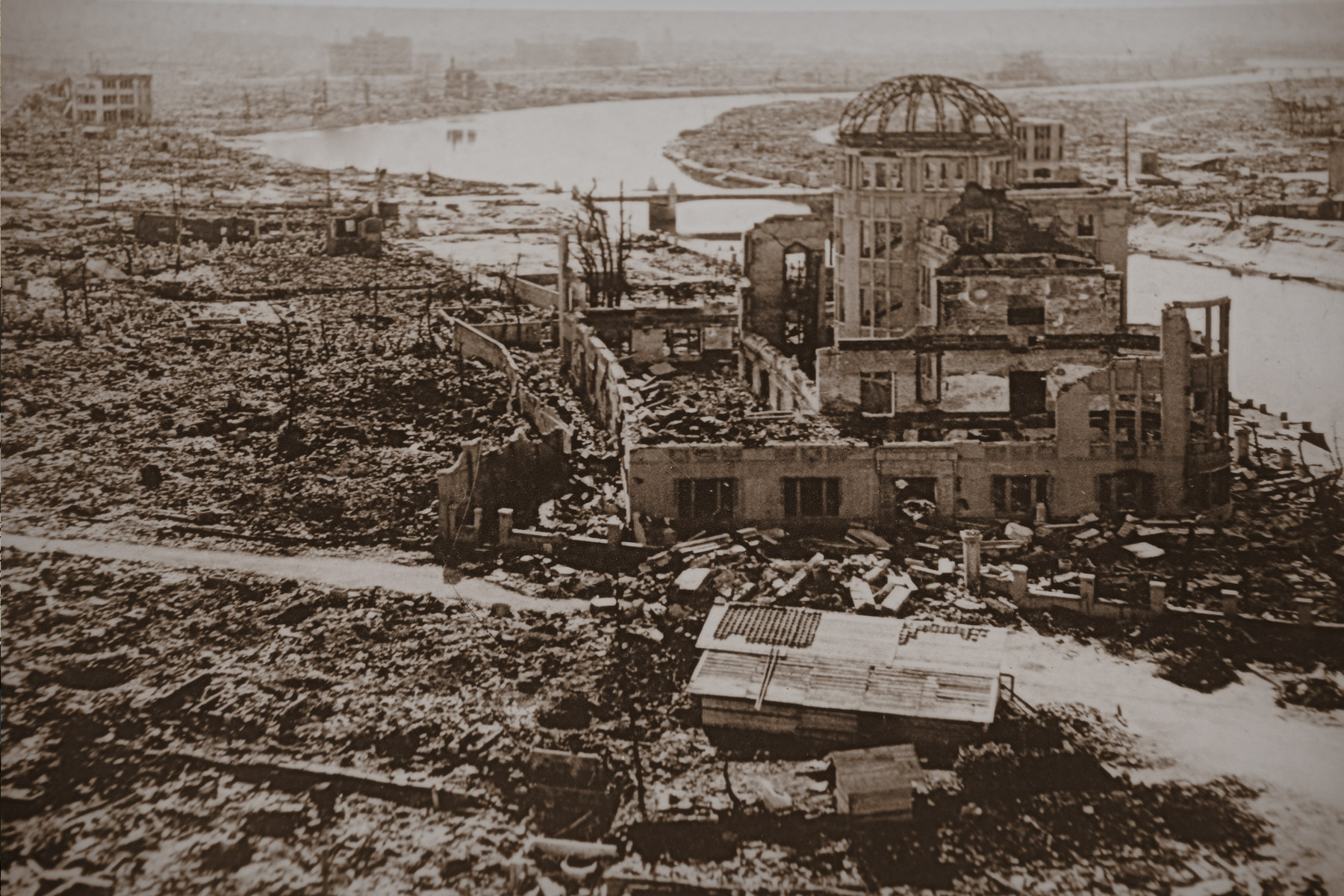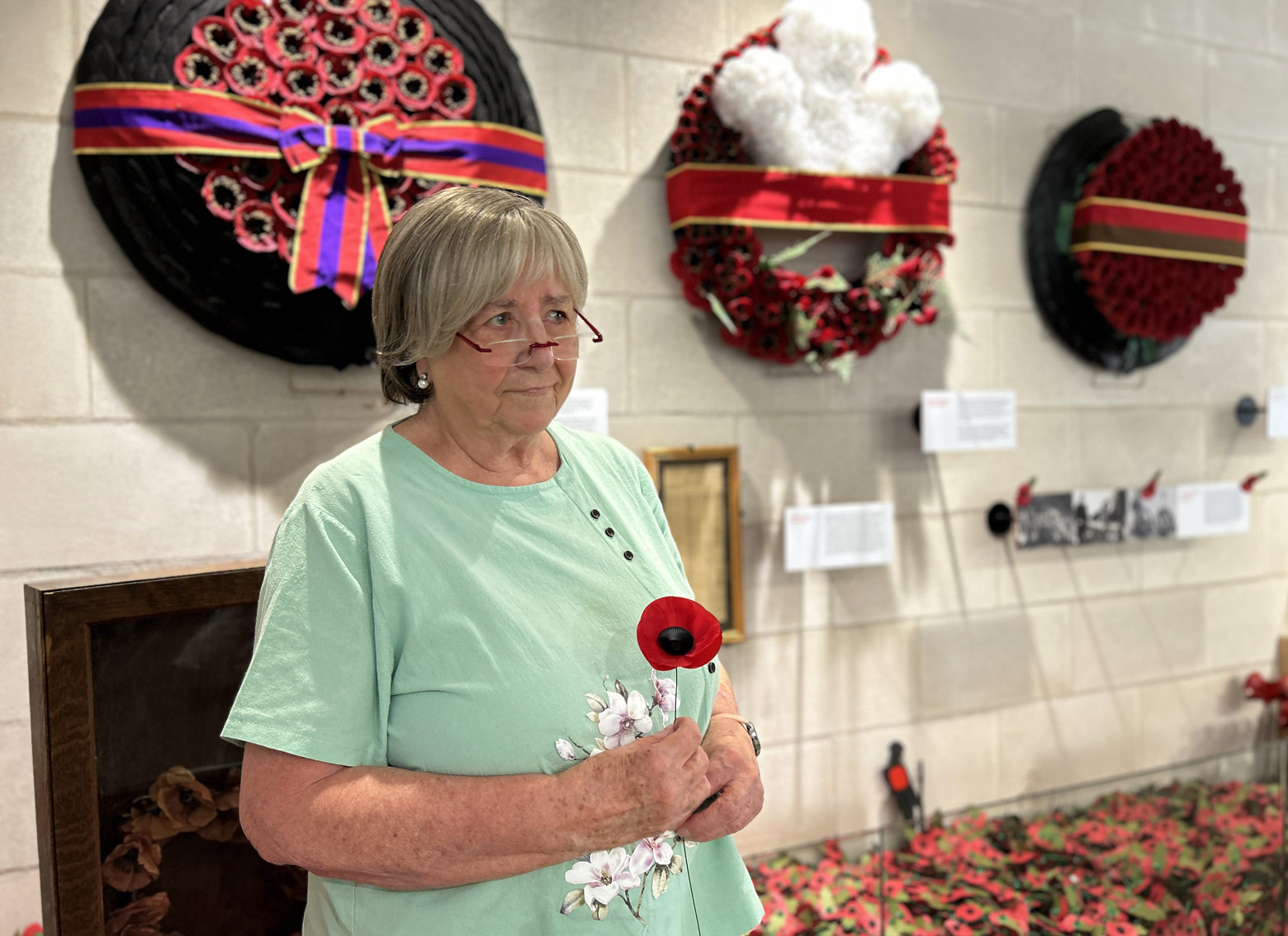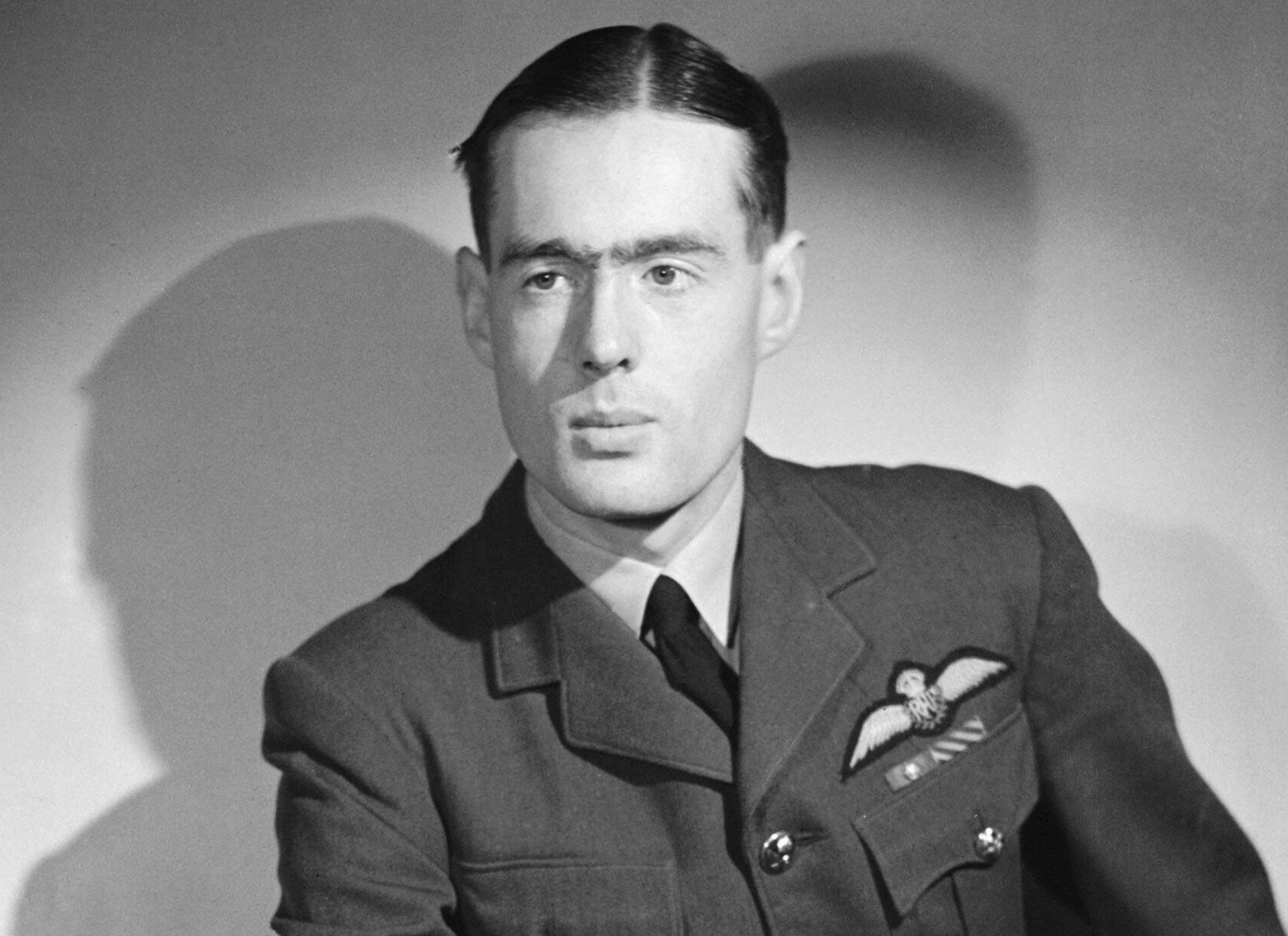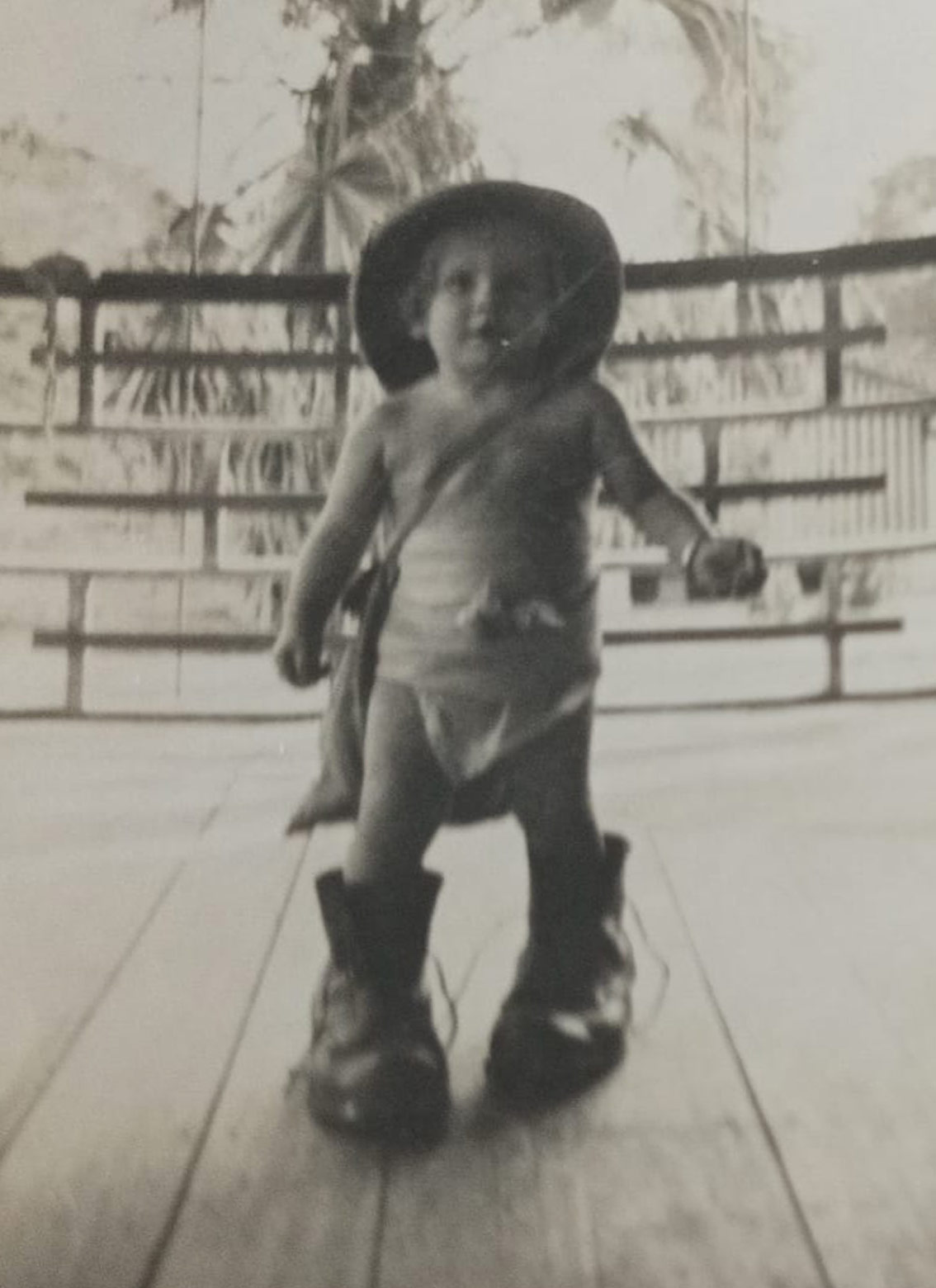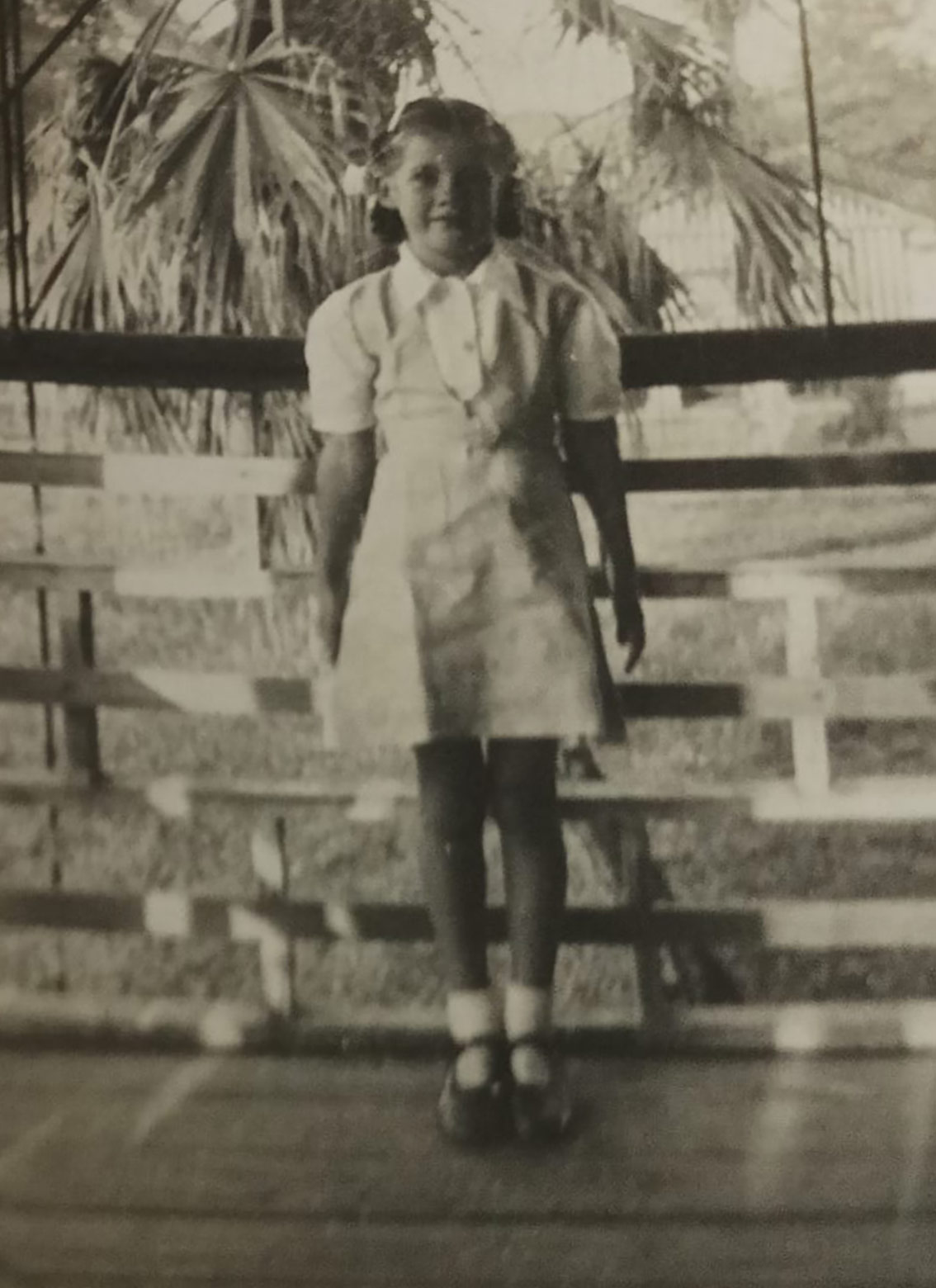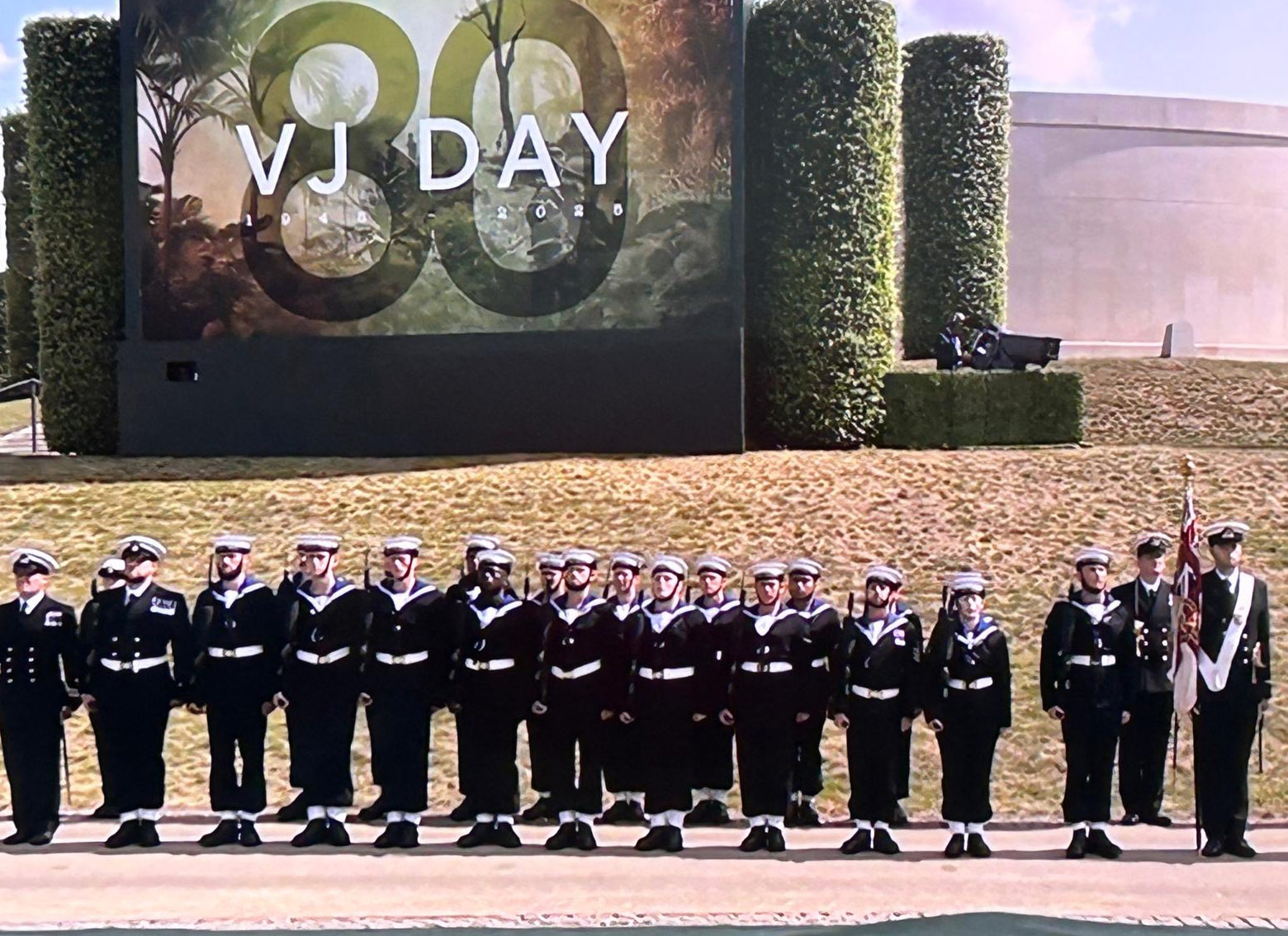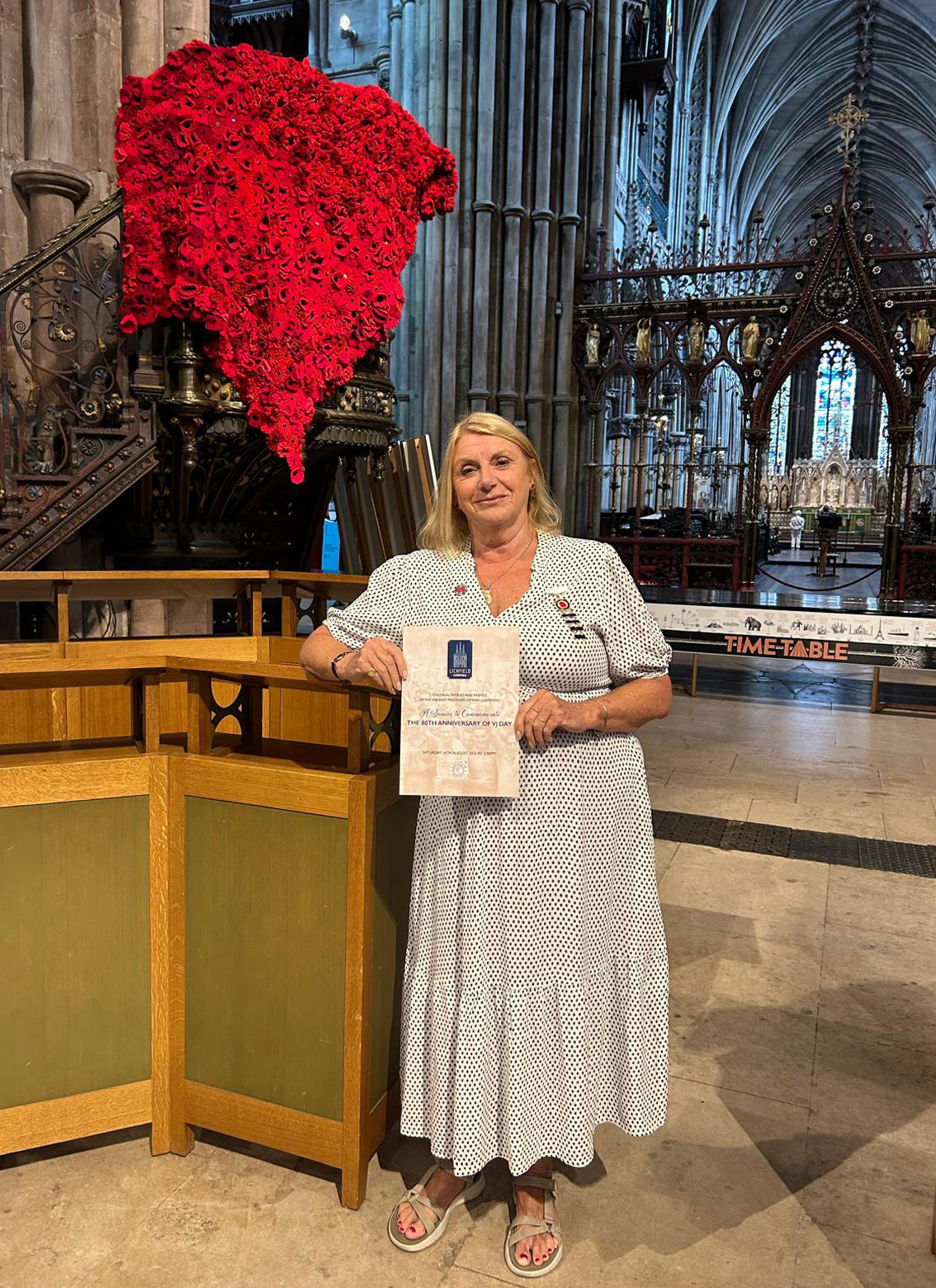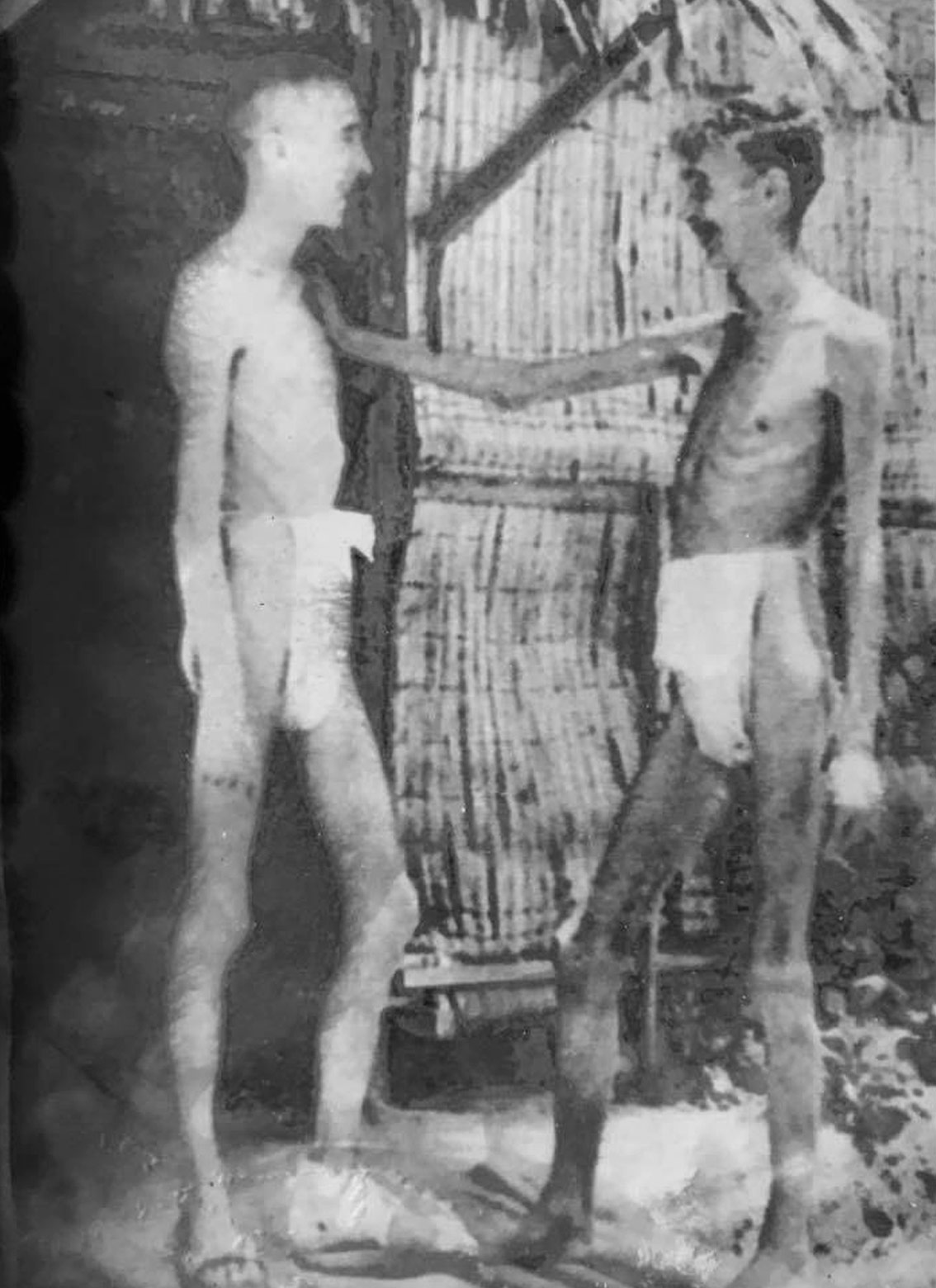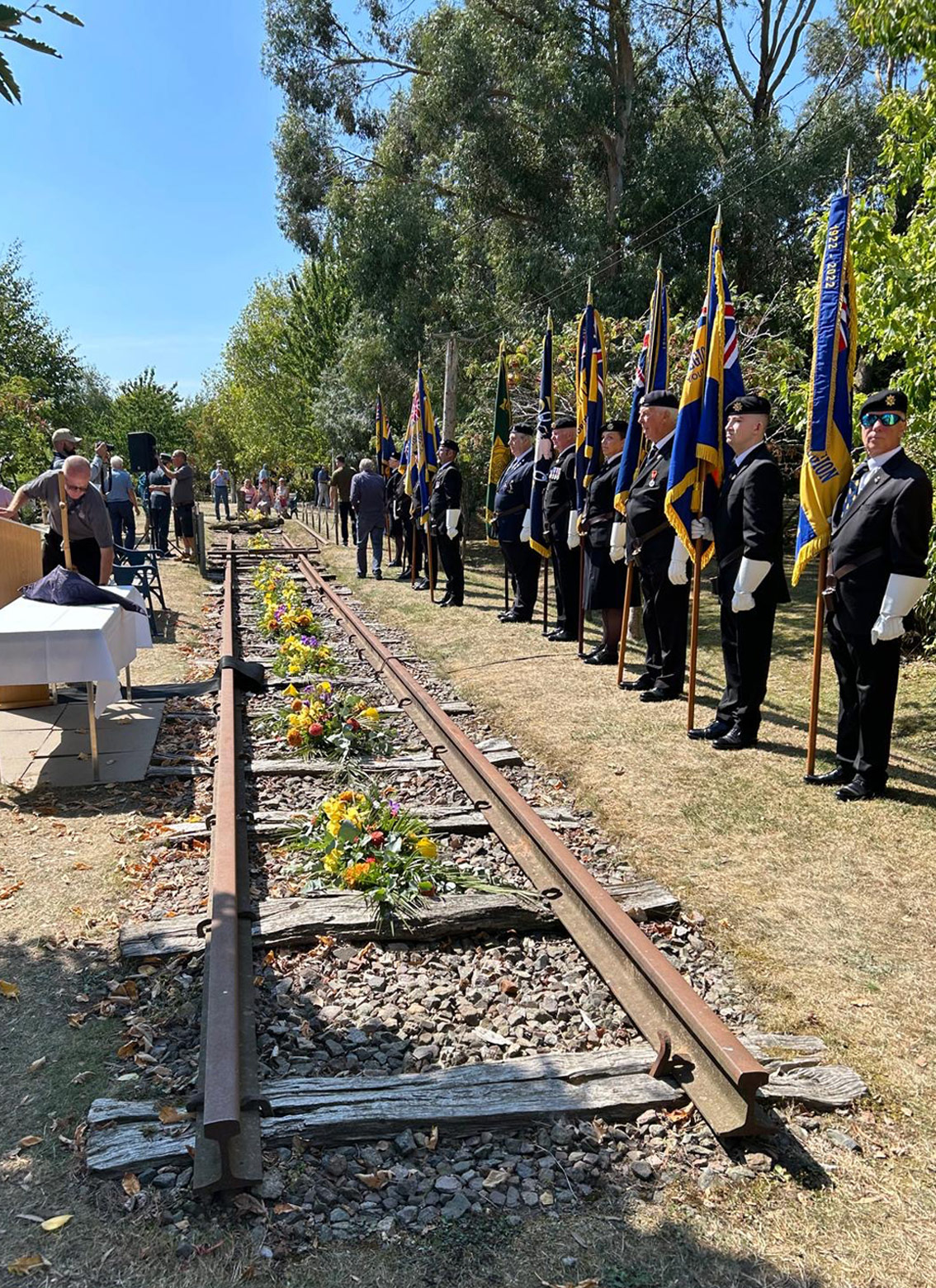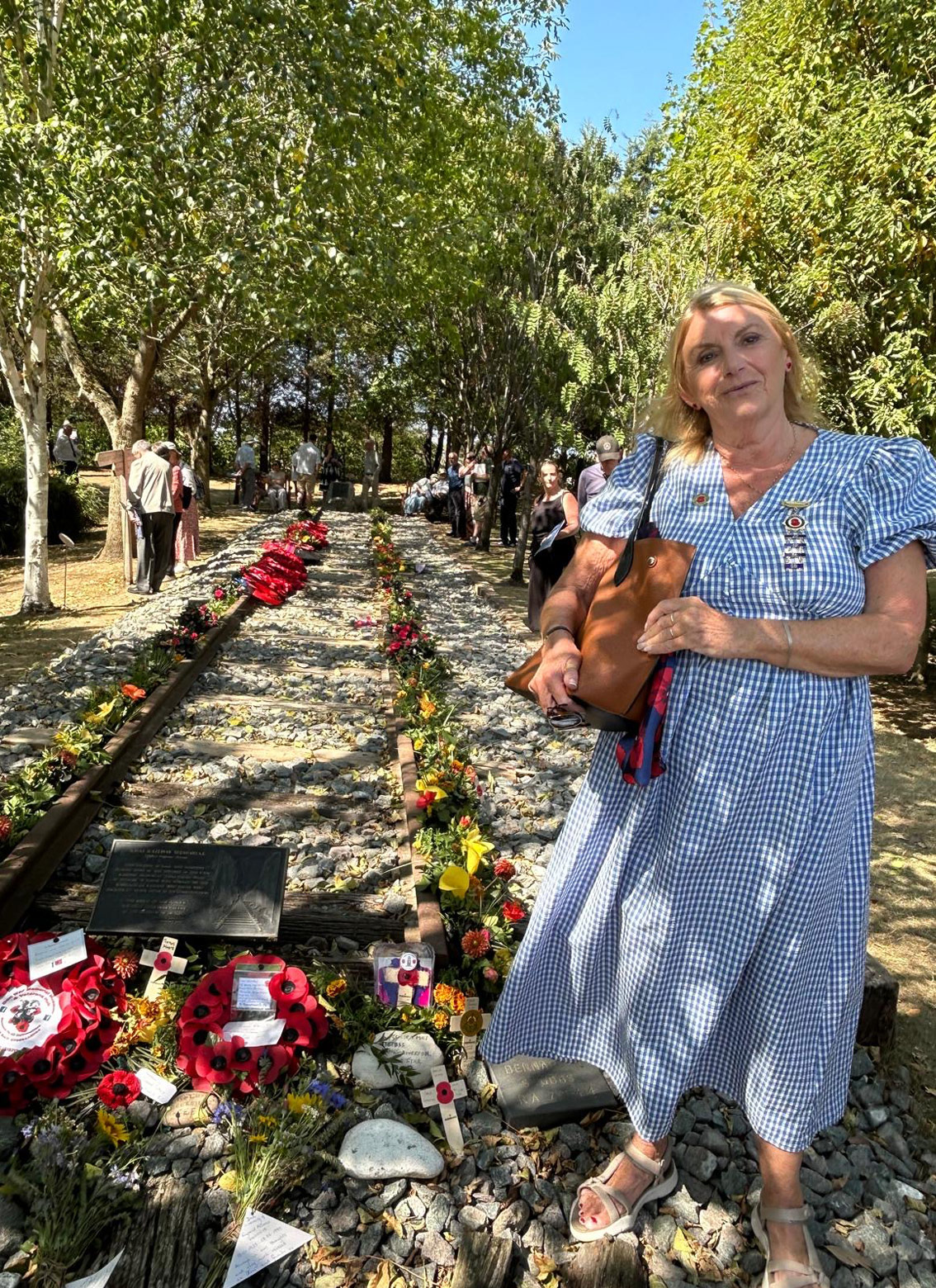VJ Day is commemorated every August 15th. This year for the 80th time.
August 6th 1945 – the first atomic bomb was dropped on Hiroshima leaving 140,000 dead.
August 9th 1945 – the second atomic bomb detonated over Nagasaki leaving 74,000 dead.
The infrastructure of both cities were destroyed; hospitals, schools, universities, Government buildings, Fire stations etc.
August 15th 1945 – the Japanese surrendered.
Numbers recorded can only be approximate. Many more casualties succumbed over the following months and years to burns, radiation sickness and various cancers.
On March 2025 the number of survivors – called hibakusha in Japan, numbered 100,000. Their average age is 86 years. I wonder what their thoughts were two weeks ago in this 80th year since their world changed when they were but little children.
The red poppy, a symbol of remembrance
My thoughts this VJ Day were triggered by a recent visit to the Poppy Factory in Richmond upon Thames.
There I learned that the idea of the red poppy began in 1917. Major George Howson M.C. was awarded the Military Cross for service in WW1. The fields of Flanders each Spring burst into flower – poppy seeds flung far and wide. So many soldiers gravely wounded, much death amid the carnage. So the idea of a red poppy became the symbol of tribute and remembrance to those sacrificed in war – any war.
‘Lest we forget’ does ring a bit hollow I’m thinking as I avoid watching news bulletins.
The first poppy factory was opened in 1922, moving to Richmond in 1926. Major Hewson’s vision was to provide employment for the wounded veterans of WW1.
Now official ceremonial poppy wreaths are made by disabled veterans in Richmond and their mission has expanded to support ex-service personnel into wider employment. The day I was there they were preparing magnificent poppy wreaths for the VJ Day commemorations being held at the National Memorial Arboretum in Staffordshire. The King, various dignitaries, heads of Armed Services would solemnly bow and lay said wreaths. Families and veterans who survived the 1945 atomic bombings would proudly pay homage to their service mates and loved ones who did not return.
The millions of poppies sold to support the British Legion each November are now made at a factory in Kent by disabled veterans. The thousands of red petals that shower down from the roof of The Royal Albert Hall are made there too.
The best way to paint a picture is to tell one person’s story. I choose three people.
Captain Leonard Cheshire
An RAF fighter pilot hero in WW2, he was the official British observer of the bomb dropped over Nagasaki. In a plane some 50 miles away, with other observers, he described it as “a vast, symmetrical fireball.”
It was a moment that brought relief at the war’s end, but a profound moral unease. (Discussed in the film Oppenheimer.)
On returning to UK, he became a strong advocate for nuclear deterrence, an avowed humanitarian and began the Leonard Cheshire homes for the disabled, sick and those needing supported living services.
Today, in August 2025 there are 120 Leonard Cheshire residential and nursing home services in UK. Globally there are 250 such services across 55 countries.
He married the redoubtable Yorkshire woman Sue Ryder in 1958. Following her time spent in Special Operations Executive (SOE) working with the Polish Resistance fighting the Nazis, she returned home and began the Sue Ryder movement. Her motto was “Do what you can for the person in front of you”.
Grief support and end of life care homes and services, her belief that no one should face grief or death alone became the well respected service that lives on today. From a wealthy background, Sue Ryder, along with Leonard Cheshire, lived frugally, dedicating their lives to help others.
Pauline Hamblin
A treasured friend of mine, Pauline is a poet, writer and story teller.
In 1945, soon after the Japanese surrender, her father joined the Colonial Service and was posted to Malaya in the Prison Service. Later his wife and two little daughters joined him in Kuala Lumpur. Pauline was almost 5 years of age, her sister Margaret just a toddler. Settling into their colonial bungalow home, Pauline describes a recurring memory.
The floors throughout the house were teak. Due to the tropical climate, wooden floors were vulnerable to termites and ants and needed regular attention. Kerosene took care of the creepy crawlies, with Mansion Polish responsible for the gleaming floors. Pauline remembers fondly the two Japanese P.O.W.s detained at the local prison coming once a week to treat the floors. Armed with big wooden sheepskin polishing blocks, they would gently place Pauline’s little feet on to the mops. Hanging on for dear life, shrieking with laughter, the little girl was whisked up and down the floors. The faster they went, the more she loved it, her giggles ringing throughout the home. The juxtaposition between a child’s innocence and a pair of Japanese military prisoners turning a simple chore into fun is delightful, touching and full of pathos.
She learned later that the men were awaiting sentencing for war crimes.
There goes our shared humanity raising it’s head again.
Her wonderful stories and poems come from her love of humanity, seeing the goodness in everyone and the sheer joy of life. Enjoy them here
Joy Dansette
My friend Joy lives in Oxfordshire. A few months ago she undertook an emotional pilgrimage to Singapore, Changi Jail Museum and on to Hell Fire Pass walking in the footsteps of her father.
As a young child, she lived with her mother and Grandmother in Middlesborough. Bullied at school, called a bastard because there was no father evident, she grew up a lonely child, focusing on her schooling ‘to make my mother proud’. Her Grandmother forbade her to speak to her mother of her father. “Never mention him, it will make your Mum ill.” Her mother always collected for the Poppy Appeal, showing Joy how important it was. Joy has carried on the tradition for 55 years supporting the British Legion, winning recognition for her hard work and her passionate loyalty.
When her Mum died, Joy found an old handbag hidden behind the wardrobe. It was stuffed with letters and various bits and pieces, but a photograph of her mother in wedding dress, laughing up at a handsome man, plus a death certificate for a Charles Freeman caught her eye.
There was also a shocking photo of two painfully thin men wearing ‘nappies’.
Her Aunt explained that Charles Freeman was her father. Her mother had a twin brother – Albert. He and Charles were great friends, enlisted in the Army together, were taken prisoner by the Japanese, tortured and forced to work with many others on the infamous Burma railway.
Her pilgrimage was arranged, her father and Uncle thoroughly researched by COFEPOW in Oxford and Singapore. Finally the tragic mystery of her father unfolded, joining up the dots of her mother’s sadness and her lonely childhood.
It would have been a deeply emotional trip. Joy placed flowers on her Uncle Albert’s grave in Thailand. Her father survived the hell and was able to return home. He died 7 years later. His little daughter was one and a half years of age.
This month she attended the 80th commemorations held in Staffordshire. Three glorious days of tears and laughter spent with many survivors or descendants of those who perished so far from home. Australians, Canadians, Europeans, Sikhs, Muslims, Hindu all representing the Commonwealth in those days of global warfare.
Referred to as the Forgotten Army; VJ Day came 3 months after the much lauded VE Day. I think we can safely say that Charles Freeman will be remembered by his daughter Joy. He would be so proud of his daughter as she is of him.
Joy gives of her time unstintingly in so many ways, over many years. A trained Samaritan listener; playing requested music on local hospital radio for patients and staff alike, ensuring cleaners to consultants don’t miss out on their favourite music and her cheerful chat. A survivor of bowel cancer Joy gives regular talks in prisons, homes, schools, various venues sharing the importance of recognising symptom and early detection. A member of the local ukelele band – her sense of humour and sheer joy of life is almost overwhelming. I marvel at her energy.
Helping the poor in many countries, Ecuador, India, Morrocco and soon Dubai where not all is flash and glitz. Slavery is alive and thriving. Her accomplishments cannot all be listed here.
Lessons that last forever
Those were my thoughts on VJ Day. Red poppy ramblings perhaps, but they teach us amazing life lessons that last forever.

